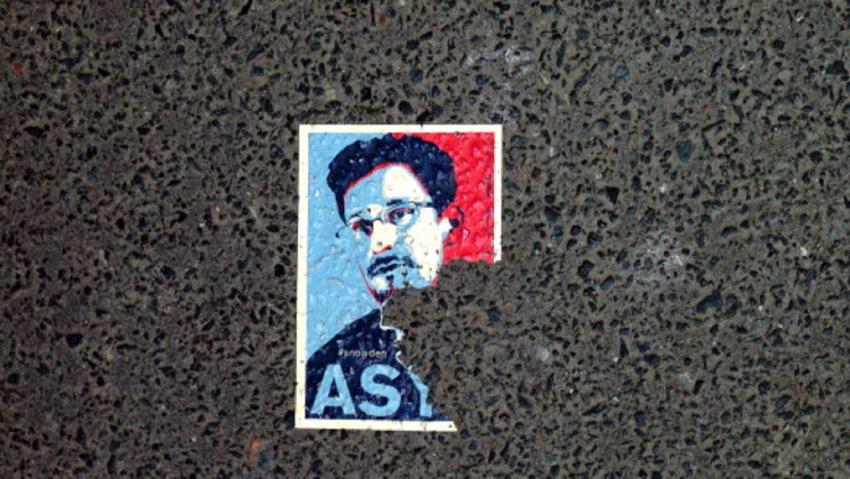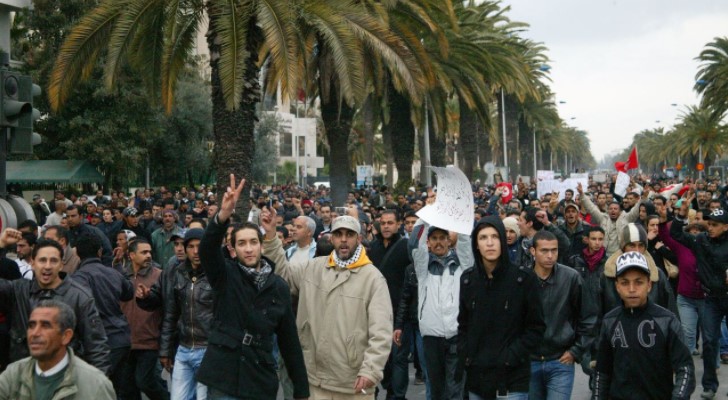It wasn’t as if Lebanon didn’t have troubles enough, with a shaky government finally formed last month. But the Syrian refugee crisis is taking a huge toll on a country which desperately needs international support.

After 11 months of political impasse that prevented the formation of a government, Lebanese political parties finally reached a consensus in mid-February. For the time being, a descent into disorder has been avoided. But it remains to be seen whether a collapse of the state can be avoided in Lebanon, a small country vulnerable to regional and international tensions, political and sectarian, and bearing the greatest burden of the Syrian refugee crisis.
The political stalemate was a manifestation of the country’s sharply polarised view of the Syrian conflict—divided into two main blocs since 2005, when the former prime minister Rafiq Hariri was assassinated and half the country protested against Syria’s suspected involvement as well as its 30-year occupation of Lebanon. Supporting President Assad’s Alawi regime in Damascus (Alawis being an offshoot of Shia Islam), the “March 8” bloc comprises Hizbullah, the Shia political party and militant group financially and militarily supported by Iran and Syria, and its allies, which include some Christians. Hizbullah has been actively fighting on Assad’s side inside Syria, an engagement strongly opposed by the generally pro-West “March 14” alliance of Sunnis and Christians, as well as by the Centrist bloc that includes the Druze.
The new government is made of three equal blocs totalling 24 ministers (March 8, March 14 and Centrists). Given that March 14 previously refused to talk with Hizbullah as long as it was fighting in Syria, and Hizbullah had refused to accept certain March 14 figures in key ministries, the compromise is considerable—but fragile.
According to Sami Atallah of the Lebanese Centre for Policy Studies, Lebanese politicians compromised “because they were given the green light” by more powerful nations—Iran and Saudi Arabia. Iran is keen to have a government that includes its ally Hizbullah, while Saudi Arabia, which opposes Shia Iran and Hizbullah, has become more willing to compromise on issues relating to Syria and Lebanon since its foreign policy has come under the control of more moderate parties.
Uneasy atmosphere
While it is in the interests of regional powers to prevent Lebanon from deteriorating, as long as the Syrian conflict continues the situation remains worrying. The relative absence of tourists and the uncharacteristically quiet nightlife in Beirut reveal the uneasy atmosphere on the ground. There is understandable nervousness among Lebanese and potential visitors after recent tit-for-tat suicide and car bombings in the capital, as well as bombs and sporadic armed confrontation in other parts of the country.
In November and again in February, Al-Qaeda-linked suicide bombers targeted the Iranian embassy in Beirut, leading to several deaths and injuries, and sparking fears that for the first time Sunni extremism was making inroads into Lebanon. In January, a car bomb exploded in the mainly Shia southern suburbs, killing four, and there have been explosions in the Shia town of Hermel in the eastern Bekaa near the Syrian border. In December, a car bomb in central Beirut killed Mohammad Chatah, senior adviser to March 14 figurehead and Future Party leader Saad Hariri (Rafiq’s son) and a forthright critic of Assad’s regime and Hizbullah.
Since the outbreak of the Syrian crisis in 2011, there have also been recurring confrontations between gunmen in the northern city of Tripoli, where there is a community of Alawis with ties to Syria. These have taken place on the border between the Sunni neighbourhood of Bab al Tabaneh and the Alawi neighbourhood of Jabal Mohsen.
Amid these tensions between pro- and anti-Assad political blocs, the Special Tribunal for Lebanon opened in January at the Hague. Five members of Hizbullah are being tried in absentia for the 2005 assassination of Hariri and 22 others—the first time a distinct charge of terrorism has been brought before an international court and the first time since Nuremberg that anyone has been tried before such a court entirely in absentia.
As long as the war continues in Syria, the refugees won’t be going home.
Meanwhile, Israel, whose apparent policy has been to stand back and watch events in Syria while strongly opposing Western rapprochement with Iran on the international stage, launched two air raids in late February on a Shia area near the Syrian-Lebanese border. According to reports these hit trucks carrying weapons for Hizbullah, which can be transported from Iran and Russia through Syria and across the porous border into Lebanon. Although there was no official acknowledgement, as with several similar Israeli air strikes within Syria since 2011—perhaps to avoid retaliatory action—an unnamed Israeli security official confirmed the attacks to Time magazine.
To complicate matters, the radicalised Sunni fighters of the Syrian opposition, Jabhat al Nusra (the Al-Qaeda-affiliated group in Syria) and the Islamic State of Iraq and greater Syria (ISIS), have been fighting each other in certain areas while sometimes collaborating against Assad’s forces. Lebanese media have warned of their potential expansion into the country.
Strain intense
Most pressing of all, Lebanon is unable to cope with the daily flow of Syrian refugees. Syria’s population is 22.5 million; around 6 million are internally displaced and 2.5 million are registered as refugees in neighbouring countries—a million in Lebanon. And with many unregistered refugees and thousands more entering Lebanon every day, the total could reach 2 million this year. In a country of 4 million, this would mean that every third person would be Syrian. The political, economic and social strain is intense.
Many Lebanese resent Syria because of its three decades of occupation, which ended in 2005 amid the popular outcry against Hariri’s assassination and international pressure. Nevertheless, the Lebanese have been remarkably tolerant and hospitable towards the refugees. In the early stages of the crisis, Lebanese in the poor northern region sheltered families in their homes and outhouses for free. Lebanese of all walks of life continue to offer shelter, sometimes very cheaply or for free, and to organise charitable distributions to refugees individually and through local NGOs.
But as the scale of the problem has increased there have been more and more cases of resentment, racism and exploitation—whether landlords who charge rent for barely habitable spaces or employers who exploit Syrians for cheap labour. New arrivals are willing to work for so little that Lebanese workers (as well as earlier Syrian migrants) are losing out. In December, a refugee campsite was burnt down in the eastern Beqaa by local residents who accused a refugee of sexually assaulting a disabled man. Schools and health services are no longer able to cope. In some towns and villages in the Beqaa and northern Lebanon, Syrian children comprise more than half the students. Many more are not in school, missing out on education altogether.
“Human catastrophe”
Conditions for the refugees are terrible and have been described by Ninette Kelly of the UN High Commission for Refugees as a “human catastrophe”. Most refugees rent accommodation. Some can afford to rent apartments but most live in outhouses, basement rooms, half-constructed buildings and garages, which often lack bathrooms, water and electricity. Last year saw “informal tented communities” sprawl across fields in the Beqaa valley and northern Lebanon, and they are cropping up in the south. These are often not even weatherproof and are vulnerable to floods.
Only a fraction of the money pledged by donors has been delivered to the UNHCR and international aid agencies, which can only provide immediate, emergency relief: food, water, blankets, fuel for heating, and sandbags for weatherproofing shelters and tents. They sometimes build temporary toilets and showers—without waste treatment.
Some of the worst health issues are not being addressed. Fouad Fouad of the Faculty of Health Sciences at the American University of Beirut estimates that there have been more deaths from treatable chronic illness than from conflict injuries. Those who used to have access to medication in Syria for diabetes, cancer, renal disorder and hypertension are at risk because such chronic illnesses are too expensive for UN agencies to treat. Children under the age of five who have not had the usual vaccinations are also vulnerable.
Meanwhile, psychosocial and mental health problems are severely neglected. A host of social problems have grown out of the refugee crisis. There are instances of desperate women resorting to prostitution and of parents unable to provide for their teenage daughters marrying them off to Lebanese men.
Refugees from Syria who happen to be Palestinian are arguably having the worst time of all. While, among Arab countries, Syria had provided the best conditions for Palestinians since 1948, in Lebanon they do not have the same rights to employment and residency. Many have sought shelter in Palestinian refugee camps, which were already overcrowded and impoverished. They are not helped by the UNHCR but are the specific responsibility of the UN Relief and Works Agency, which was already underfunded and cannot cope with the new arrivals.
Initially the Lebanese government was slow to react to the refugee crisis, partly underestimating a problem that would quickly grow to unimagined proportions. It also did not allow refugees to build semi-permanent shelters—fearful that, as with the Palestinian refugee crisis in 1948, the presence of a vast influx of Sunni Muslims would upset the Lebanon’s delicate sectarian, and so political, balance.
On their side, international donors have been reluctant to channel aid through an administration seen as inadequately accountable and transparent. To address this, the Lebanese government and the World Bank created a trust fund and the new consensus coalition may reassure potential donors. But it must assert itself on the international stage and insist that aid projects do more than provide short-term, emergency relief.
International support needed
As long as the war continues in Syria, the refugees won’t be going home. The Lebanese government needs international support to invest for the future in infrastructure, water, electricity, waste disposal, health and social services. This would benefit a Lebanese population suffering increasing unemployment and poverty, as well as the Syrian refugees, and so ease tension between them.
Atallah points out that many of Lebanon’s problems—its “chronic budget deficit, unemployment, oligopolistic market structure, poor infrastructure”—preceded the Syrian crisis. For Lebanon to stand a chance of coping with the unprecedented pressures of the refugee influx, these underlying and pre-existing issues need to be addressed through medium and long-term projects, with transparent mechanisms for the allocation of funding.
Reaching enough of a consensus to form a government last month was a positive step that showed Lebanese leaders are still able to compromise—as they have on many occasions in the last decade, facing apparently intractable crises. This should encourage potential donors to support Lebanon as it pays the price of the Syrian conflict.
Nevertheless, this government was formed, with a go-ahead from regional powers allied to different groups within Lebanon, with a view to preventing further deterioration before presidential elections in June. The socio-economic challenges it faces remain formidable. The prolonged conflict in Syria continues to test the stability of the Lebanese state, and constitutes a more serious threat to its sovereignty and independence than previous, post-civil war confrontations.
Read the full article in OpenDemocracy here



